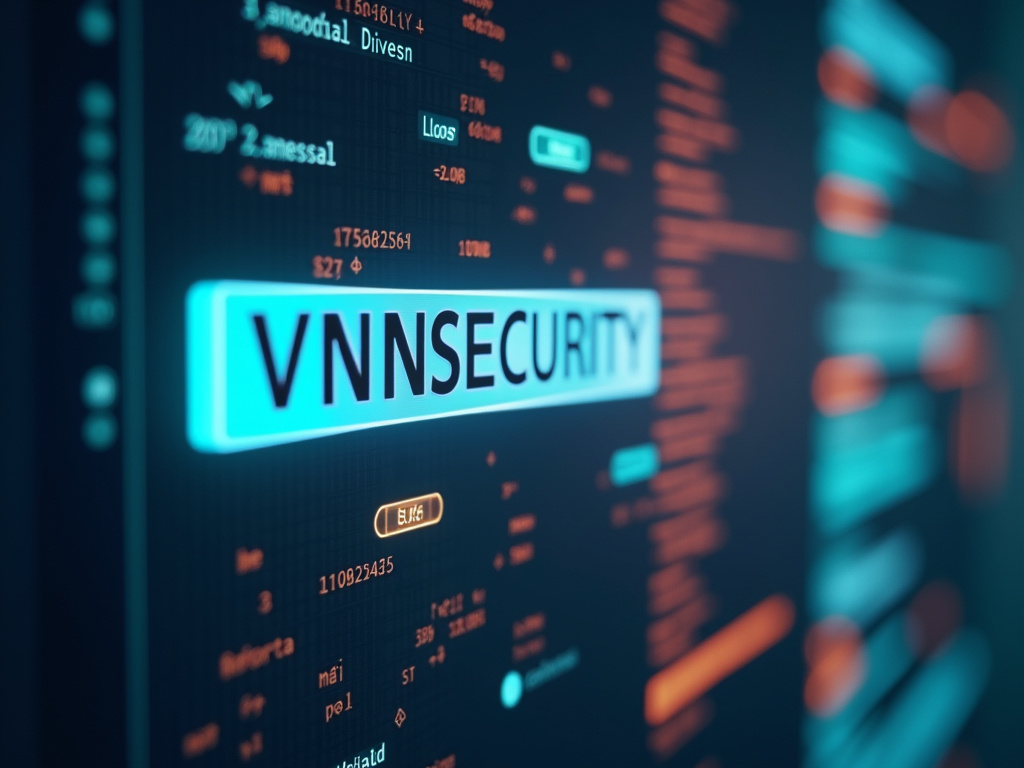VPNs for Remote Support Teams: Ensuring Secure Assistance

Table of Contents
VPNs for Remote Support Teams: Ensuring Secure Assistance
In today's dynamic digital environment, remote support teams serve as the crucial link between businesses and their clients, offering technical assistance, troubleshooting, and expert guidance from virtually anywhere. However, this reliance on remote connectivity introduces a complex web of security challenges. When support personnel access sensitive client data, internal systems, and proprietary information from geographically diverse locations, they become inherently vulnerable to cyber threats, data breaches, and privacy violations.
This is where Virtual Private Networks (VPNs) step in as a non-negotiable foundational tool. These specially designed digital solutions are crucial for enhancing security protocols within your company and ensuring 'secure assistance' is provided without any risks. A 'remote support VPN' is not just another software application; it's a tailored security ecosystem designed to cater to the unique needs and security requirements of remote support teams.
At its core, it functions by constructing a robust and impenetrable encrypted tunnel. This tunnel acts like a private highway between the support agent’s device, whether it's a laptop, tablet, or even a smartphone, and the client's network or the company's central server. Imagine this tunnel as a secure vault, shielding all data transmitted during the remote support session from prying eyes and unauthorized access.
This prevents malicious actors from intercepting sensitive data, stealing confidential client information, or injecting malware into the system. The beauty of a VPN lies in its comprehensive, multi-layered security approach. It's not just about encryption; it also encompasses stringent authentication protocols and ensures unwavering data integrity.
Encryption acts as a digital scrambler, transforming readable information into unintelligible ciphertext, rendering it useless to anyone without the decryption key. Authentication, on the other hand, verifies the identity of both the support agent and the client device, acting as a digital gatekeeper to prevent imposters from gaining entry. Data integrity ensures that the transmitted data remains pristine and unaltered during its journey, protecting against manipulation, corruption, or accidental modification.
But the benefits extend beyond mere threat prevention. A VPN also empowers remote support teams to seamlessly bypass geographical restrictions and access resources as if they were physically present within the client's or organization's network. This seamless, unobstructed access drastically enhances efficiency and productivity.
Support agents can resolve complex issues quickly and effectively, regardless of their location, enabling them to provide timely assistance and minimize disruptions. A technician in California, for example, can securely access a server in London, diagnose a problem, and implement a fix, without ever leaving their desk. This level of global reach is essential in today's interconnected business landscape.
However, it's crucial to understand that not all VPNs are created equal. The market is flooded with options, each offering different features, levels of security, and pricing structures. When choosing a VPN solution for your remote support teams, you absolutely must consider specific vital features.
Look for a VPN that utilizes strong encryption protocols such as AES-256, a gold standard in the industry. Pay attention to the location of the VPN servers. A wide distribution of servers around the globe can improve connection speeds and bypass geographical restrictions.
Scrutinize the logging policies of the provider. A reputable VPN provider should have a strict no-logs policy, meaning that they do not track or store your online activity. Finally, choose a VPN that is user-friendly and easy to deploy across your team.
Opting for a reputable VPN provider that prioritizes security and 'data privacy' is non-negotiable when protecting sensitive information and maintaining unwavering client trust. By strategically leveraging the power of VPNs, remote support teams can effectively transform into fortresses of secure assistance, safeguarding precious client 'data privacy', ensuring inviolable 'client interaction security', and delivering reliable support with unwavering confidence. The holistic advantages extend far beyond basic protection; it involves amplified efficiency, streamlined access to vital resources, and a reinforced reputation for trustworthiness that resonates with both clients and stakeholders.
As the world becomes increasingly interconnected and digitally reliant, and as remote support undeniably becomes progressively critical to business continuity and success, the importance of VPNs in securing these operations will only continue to escalate.
The primary and most compelling benefit of employing a 'VPN for teams' within a remote support framework lies in its fundamental ability to establish a secure, impregnable, and encrypted connection. This connection serves as an unbreachable digital fortress, effectively shielding sensitive data from the lurking threats of potential eavesdroppers and sophisticated cybercriminals. When support agents connect to remote systems without the protective layer of a VPN, their data transmission channels become alarmingly vulnerable.
They are exposed to a range of malicious activities, including man-in-the-middle attacks, where attackers intercept and potentially alter communications between two parties, packet sniffing, where malicious actors capture and analyze data packets transmitted over a network, and various other insidious forms of data interception. Each of these threats poses a significant risk to the confidentiality, integrity, and availability of sensitive information. A VPN acts as a powerful antidote to these vulnerabilities.
It meticulously encrypts all data traversing the secure tunnel, effectively turning it into an unreadable jumble of characters, rendering it utterly useless to anyone attempting to intercept it without the appropriate decryption key. This encryption safeguards a wide array of critical information, encompassing login credentials, which are essential for accessing remote systems, sensitive client data, which might include personal information, financial records, or intellectual property, and proprietary business information, such as internal strategies, financial data, and trade secrets. The safeguards extend beyond encryption with authentication, ensuring that only authorized personnel can gain access to remote systems.
Multi-factor authentication (MFA) introduces an additional, crucial layer of security, requiring users to provide multiple forms of identification before being granted access. This might involve a password combined with a one-time code sent to a mobile device, a biometric scan, or a security token. By implementing MFA, organizations can drastically reduce the risk of unauthorized access resulting from compromised credentials, as even if a hacker manages to steal a password, they will still need to bypass the other authentication factors to gain entry.
The paramount importance of superior 'client interaction security' cannot be overstated, especially in industries that regularly handle sensitive customer data. Consider, for example, sectors such as healthcare, where patient medical records must be protected with unwavering diligence, finance, where customer financial information requires the highest degree of confidentiality, and legal services, where client communications and legal documents are subject to strict privilege rules. In these and many other industries prioritizing data 'privacy' and security is crucial.
By implementing a meticulously configured and diligently maintained VPN solution, organizations can dramatically minimize the risk of devastating data breaches and potentially crippling compliance violations. This proactive approach provides clients with the ironclad assurance that their information is being handled with the utmost care and is protected by industry-leading security measures. Moreover, embracing the use of a VPN helps demonstrate a steadfast commitment to data security to both clients and regulatory bodies, bolstering trust and fostering stronger, more enduring business relationships.
In addition to the substantial enhancement of data security, a VPN offers an additional layer of 'data privacy' by effectively masking the support agent's IP address and geographical location. In so doing, the VPN significantly impedes the ability of websites, trackers, and other omnipresent online entities from actively monitoring the agent’s online activities or surreptitiously collecting their personal data. This is achieved by routing the agent’s internet traffic through a remote VPN server, which then acts as an intermediary, effectively hiding the originating IP address and replacing it with the IP address of the VPN server.
This cloaking effect provides a significant degree of anonymity and makes it much more difficult for third parties to track the agent’s online movements. As an illustration, a strategically implemented VPN can shield agents from the incessant barrage of irritating and intrusive targeted advertising, prevent them from being subjected to unfair and discriminatory price discrimination based on their presumed location, and protect them from the potential privacy intrusions associated with various forms of pervasive online tracking that could potentially compromise their personal data. The advantages are clear when a company decides to use a VPN for its remote support teams.
Beyond the immediate and readily apparent security advantages, embracing a VPN as an integral component of 'secure assistance' protocols for remote support teams can also contribute significantly to enhanced operational efficiency and improved overall productivity. By establishing a secure and reliably robust access pathway to remote resources, VPNs effectively empower support agents to resolve a wide spectrum of issues with increased speed, accuracy, and overall effectiveness, regardless of their physical location. This aspect is particularly paramount in industries where any degree of downtime can translate into significant financial losses, operational disruptions, or lasting damage to reputation.
To illustrate the point, consider a scenario involving a remote support team tasked with assisting a manufacturing plant in troubleshooting a critical equipment malfunction. Without the secure and seamless access provided by a VPN, the team might encounter substantial delays in gaining entry to the plant's internal network and conducting a comprehensive diagnosis of the underlying problem. Such delays can lead to prolonged periods of equipment downtime, resulting in significant production losses, missed deadlines, and substantial financial repercussions for the manufacturing plant.
However, with the establishment of a secure and efficiently optimized VPN connection, the support team can quickly and seamlessly access the plant's essential systems. This immediate access allows them to swiftly diagnose the issues, implement effective solutions, and minimize downtime. They can get the equipments running in a shorter time, thus preventing further losses and maintaining production levels.
Furthermore, the implementation of a VPN can greatly facilitate secure collaboration between remote support agents and various other members of their team. Thanks to the enhanced security provided by the VPN protocols, agents can securely share files, sensitive documents, detailed screen recordings, and other essential information. They can do all of this while maintaining the assurance that the data remains protected from unauthorized interception or access.
This secure sharing capability fosters a more collaborative and efficient working environment, enabling team members to pool their knowledge, share insights, and collectively tackle complex issues with greater effectiveness. This robust collaborative approach goes beyond simply improving efficiency, it results in notable enhancements in the overall quality of support. VPNs also promote greater flexibility and increased mobility for remote support teams.
Agents gain the capability to securely connect to remote systems from virtually any location that provides an internet connection. Equip them to work, whether agents are actively traveling, working efficiently from the comfort of their homes, or directly assisting clients within their on-site environments, a properly configured VPN maintains security and connection. This inherent flexibility provided by a VPN proves invaluable in today's dynamic business environment.
The ability to work securely and efficiently from anywhere allows support teams can greatly expand their reach, improve their responsiveness, and provide unparalleled levels of support to their clients, regardless of geographical barriers or logistical constraints. In addition, modern VPN solutions often incorporate advanced features. These features can further boost the productivity and efficiency of remote support agents.
Split tunneling, for example, enables agents to selectively route only specific types of traffic through the secure VPN tunnel while allowing all other traffic to navigate directly to the internet. This feature proves particularly useful when dealing with bandwidth- intensive activities, such as downloading large files or streaming high-resolution video. By selectively routing traffic, split tunneling can minimize bandwidth consumption, reduce latency, and improve overall application performance.
These efficiency gains translate into faster download speeds, smoother streaming experiences, and improved user experiences. A well defined VPN leads to enhanced productivity and reduced costs. It provides a better work environment for the support teams.
Selecting the appropriate VPN solution for a remote support team necessitates careful consideration and a thorough evaluation of various factors. Not all VPNs are created equal, and choosing the wrong one can leave your team vulnerable to security threats and compromise the 'data privacy' of your clients. Therefore, it is imperative to conduct diligent research and select a VPN that aligns perfectly with your specific security requirements, operational needs, and budget constraints.
One of the foremost considerations when choosing a 'remote support VPN' is the strength of its encryption protocols. Strong encryption is the cornerstone of any secure VPN connection, and it is essential to ensure that the VPN you select employs robust and industry-standard encryption algorithms. Look for VPNs that utilize Advanced Encryption Standard (AES) with a 256-bit key (AES-256), which is widely regarded as one of the most secure encryption methods currently available.
AES-256 provides a virtually impenetrable level of security, making it extremely difficult for unauthorized parties to decrypt the VPN's traffic. In addition to strong encryption, it is equally important to consider the VPN provider's logging policies. A reputable VPN provider should maintain a strict no-logs policy, meaning that they do not collect, store, or track any of your online activities, including your browsing history, IP address, connection timestamps, and traffic data.
A no-logs policy ensures that your data remains private and confidential, even from the VPN provider itself. Before subscribing to a VPN service, carefully review its privacy policy to verify that it clearly states its no-logs commitment. Furthermore, the location of the VPN provider is also a significant factor to consider.
VPN providers that are based in countries with strong data privacy laws, such as Switzerland or Iceland, are generally considered to be more trustworthy than providers based in countries with lax or non-existent privacy regulations. VPN providers based in countries that are members of the "14 Eyes" surveillance alliance may be compelled to share user data with government intelligence agencies, which could compromise your 'data privacy'. Another crucial element to evaluate is the geographical distribution of the VPN's servers.
A VPN with a wide network of servers located in various countries around the world offers several advantages. First, it allows you to connect to servers that are geographically closer to your location, which can improve connection speeds and reduce latency. Second, it enables you to bypass geographical restrictions and access content that may be blocked or censored in your region.
Third, it provides you with a greater degree of anonymity by allowing you to choose from a variety of IP addresses and server locations. The security features offered by the VPN are also essential to consider to ensure 'client interaction security'. Look for VPNs that offer features such as a kill switch, which automatically disconnects your internet connection if the VPN connection drops, preventing your data from being exposed.
DNS leak protection prevents your DNS requests from being leaked to your ISP, which could reveal your browsing activity. IP leak protection ensures that your real IP address is not leaked, even if the VPN connection fails. The user-friendliness of the VPN is another essential aspect, particularly for remote support teams that may not have extensive technical expertise.
Choose a VPN that offers intuitive interfaces, easy-to-use apps for various platforms, and comprehensive documentation. This will make it easier for your team to adopt and use the VPN effectively, minimizing the risk of misconfiguration or errors. Finally, consider the VPN's performance and reliability.
Run speed tests to evaluate the VPN's connection speeds and ensure that it does not significantly slow down your internet connection. Check the VPN's uptime record to ensure that it is reliable and consistently available. Read reviews from other users to get an understanding of their experience with the VPN's performance and stability.
By cautiously evaluating all these factors, you can confidently select a VPN solution that provides robust security, dependable performance, and an intuitive user experience for your remote support team.
After effectively deploying a VPN solution for your remote support team, the process of safeguarding 'secure assistance' doesn't conclude there. Consistent and thorough monitoring, regular auditing, and proactive maintenance measures are essential to ensuring the VPN's ongoing effectiveness and adaptability in the face of evolving cyber threats. A pivotal aspect of maintaining a secure VPN environment is the implementation of robust monitoring systems.
These systems should be designed to continuously track the VPN's performance, identify potential security breaches, and detect any unusual activity that could indicate a compromise. Monitoring should encompass key metrics such as connection speeds, server uptime, traffic volume, and user activity. By closely monitoring these metrics, you can swiftly identify and address any issues that may arise, preventing them from escalating into more serious problems.
Regular security audits are equally crucial for verifying the VPN's configuration and assessing its compliance with security policies and industry best practices. Security audits should be conducted at least annually or more frequently if there have been significant changes to the network or security landscape. During an audit, security professionals should review the VPN's settings, access controls, encryption protocols, and logging policies.
They should also conduct penetration testing to identify any vulnerabilities that could be exploited by attackers. Another important aspect of VPN maintenance is ensuring that all VPN software and firmware are kept up-to-date. Software updates often include critical security patches that address newly discovered vulnerabilities.
Failing to install these updates promptly can leave your VPN vulnerable to exploitation. It is important to establish a system for tracking and installing updates regularly. This will prevent security bridges related to obsolete softwares.
Proper user training also plays a vital role in maintaining a secure VPN environment. Ensure that all remote support team members receive thorough training on VPN usage, security best practices, and data privacy policies. Training should cover topics such as connecting to the VPN, using strong passwords, avoiding phishing scams, and handling sensitive data securely.
Regular refresher training should be provided to reinforce these concepts and keep team members informed of the latest threats and security measures. Implementing strong password policies is also essential to protecting your VPN from unauthorized access. Require all users to create strong, unique passwords and to change them regularly.
Enforce the use of multi-factor authentication (MFA) whenever possible to add an extra layer of security. Consider implementing a password management solution to help users securely store and manage their passwords. Furthermore, it is crucial to establish clear and comprehensive 'VPN for teams' usage policies that outline acceptable and unacceptable VPN usage.
These policies should cover topics such as connecting to public Wi-Fi networks, accessing sensitive data, and sharing VPN credentials. Ensure that all team members are aware of and understand the VPN usage policies and that they are held accountable for compliance. Regularly review and update these policies as needed to reflect changes in the security landscape or business requirements.
In addition to technical measures, it is also important to foster a culture of security awareness among your remote support team. Encourage team members to be vigilant and to report any suspicious activity or potential security breaches immediately. Create a system for reporting security incidents and ensure that all reports are promptly investigated and addressed.
By implementing these comprehensive monitoring, auditing, maintenance, and training measures, you can ensure that your VPN solution remains an effective tool for safeguarding 'secure assistance' and protecting the 'data privacy' of your clients and the security of your organization's sensitive information. With commitment to vigilance and proactive security practices, you can minimize the risk of data breaches, maintain the integrity of your remote support operations, and foster a culture of trust and confidence with your clients. A company needs to use VPN for its remote support teams to assure protection of their data and clients.
Stay Updated
Get the latest VPN news, tips, and exclusive deals to your inbox.




